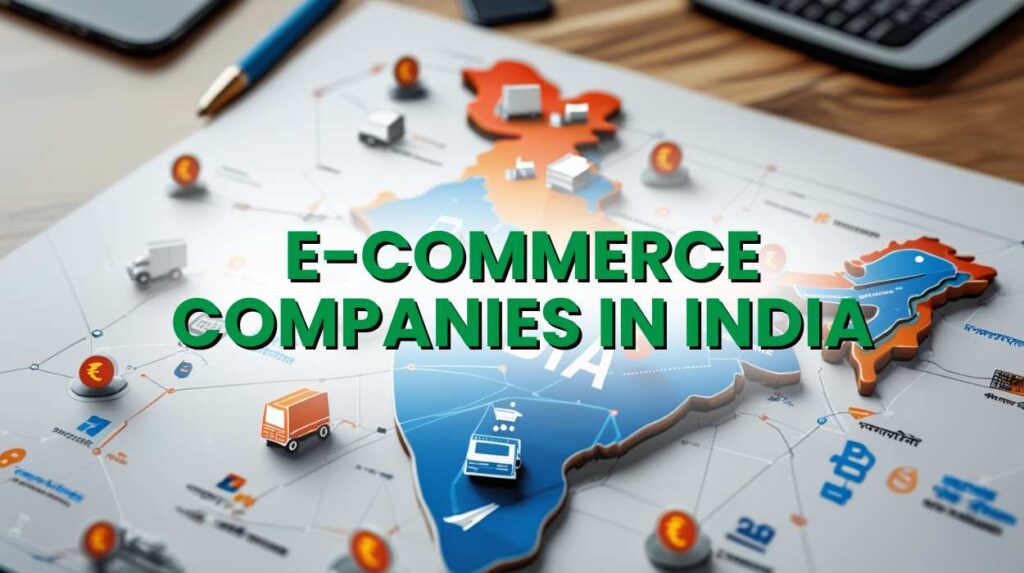The Indian retail segment is a victim of an overwhelming change brought about by the rising e-commerce industry. The emergence of what was once a budding industry which catered mainly to urban , tech-savvy consumers two decades ago has evolved now as a mainstream phenomenon creating a new landscape of how millions of Indians are shopping, selling and transacting. This digital revolution is a go but not a trend; it’s a radical change driven by increased internet penetration and increased disposable incomes along with innovative business models.
The Indian e-commerce market is estimated to reach USD 292.3 billion by 2028, presenting a Compound Annual Growth Rate (CAGR) of 18.7%. This explosive growth highlights the ever growing importance of e-commerce companies in India as an essential force behind economic growth and an integral part of the country’s retail landscape.
E-commerce and Its Increasing Significance in the Indian Retail Sector
The E-commerce explosion has transformed India’s retail hierarchy beyond identifying. Although the traditional shops remain fairly popular, the modern online facilities are gradually gaining ground, providing their customers with unprecedented convenience, a larger choice of goods and lower price. E-commerce is no longer limited to niche market. it has invaded categories such as fashion, electronics, home goods, and more and more groceries and daily necessities.
This incremental importance is mirrored in its expanding presence in the total retail market. With the exact real time data for the current period (May 2025) changing every day, reports from the end of 2024 showed that e-commerce companies in India had already contributed a significant percentage to overall retail sales of India, which is likely to increase significantly in the coming years. This expansion is especially significant in closing geographical gaps, enabling Tier 2 and Tier 3 cities, and even down to rural areas, for the first time to access products and brands they had no prior access to. The digital marketplace is opening the retail space to small business and artisans enabling them access a nationwide customer base free of significant retail infrastructure.
Furthermore, the adoption of technology within the e-commerce platform is improving the all in all retail experience. Personalized products such as virtual try-ons, augmented reality are shaping the line between online and offline purchase as there now is omnichannel availability. This alignment is compelling traditional retailers to change course and integrate them digitally to fight well and in turn making the role of e-commerce to be the centerpiece in the modern Indian retail penumbra.
Top 10 E-commerce Companies in India
This article brings out the top 10 e-commerce companies in India that are presently thriving in India’s online shopping arena.
1. Flipkart
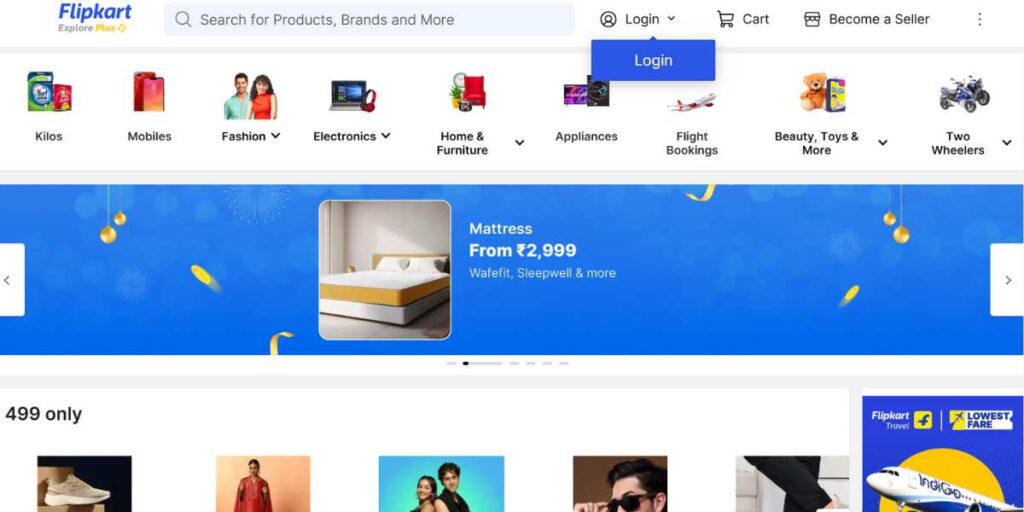
Flipkart is the country’s indigenous e-commerce giant that made online shopping a trend in the country. It was established as an online bookstore, then grew into a massive marketplace offering several product categories. After having been bought by Walmart in 2018, at a figure of $16 billion, Flipkart has become better in terms of infrastructure, technology and market presence.
Through eKart they have developed extensive physical logistics to deliver products nationally and also offered new innovative services like EMI without cost and in redeeming terms for products which they dominate electronics and smartphones segments. This massive shopping frenzy created by Flipkart’s Big Billion Days sale events have begun to become cultural events on India’s retail calendar.
Unique Selling Points (USP):
- Cash-on-delivery payment model innovation in India.
- Comprehensive warehouse network which allows rapid delivery.
- Dominant private label brands by category (MarQ, SmartBuy)
- Voice and vernacular language shopping experience
Key Categories & Services:
Electronics, Fashion, Home Appliances, Furniture, Groceries (Flipkart Supermart), Digital Payments (PhonePe, now independent), Logistics (eKart)
Market Position:
- Size: 400+ million registered users; estimated $23 billion GMV (2023)
- Ranking: 1st in overall e-commerce market share (approximately 40%)
Company Details:
- Founded In: 2007
- Industry Served: Multi-category Retail
- Headquarters: Bengaluru, Karnataka
Also Read: MNC Companies in India
2. Amazon India
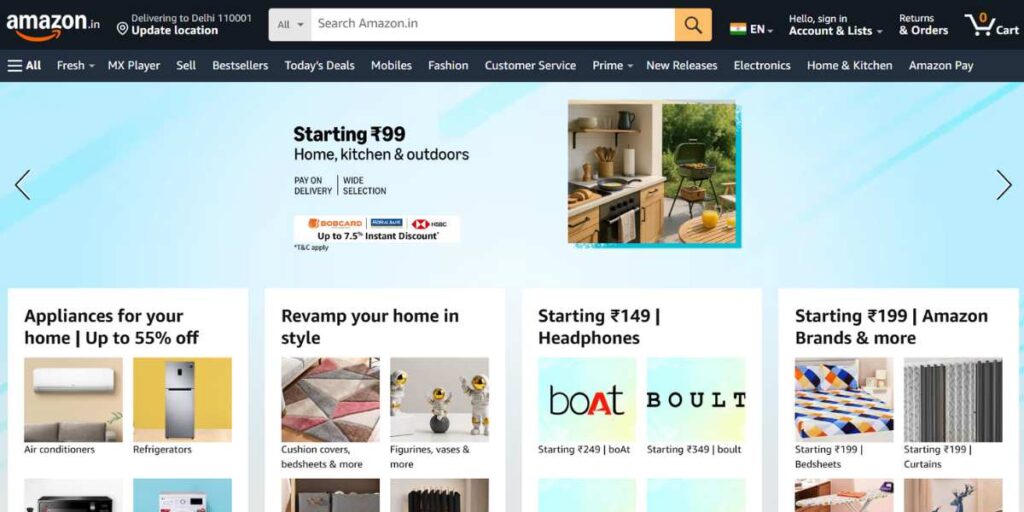
Amazon India came to the market in 2013 but very soon became a major player by aggressively expanding and investing in its counterparts. As one of the top e-commerce companies in India, the platform harnesses the technological infrastructure worldwide provided by Amazon while customising to Indian consumer preferences and hurdles. Its Prime membership program has been especially popular, and packages fast delivery with entertainment services such as Prime Video and Music. In building fulfillment centers all across India, Amazon has made its signature fast and reliable delivery promise affordable even in smaller cities.
The company has adopted India’s digital revolution through initiatives such as Amazon Pay, online shopping using Alexa available in Hindi, and programs which help small businesses and artisans. Other such platforms like Amazon Karigar and Amazon Saheli are also empowering women entrepreneurs.
Unique Selling Points (USP):
- Prime membership with a combination of shopping and entertainment benefits
- Customer service of quality and hassle-free returns
- Alexa integration and voice shopping
- Worldwide choice of products with worldwide shipping options
Key Categories & Services:
Electronics, Fashion, Groceries (Amazon Fresh), Home & Kitchen, Books, Prime Subscription, Amazon Pay, AWS Cloud Services
Market Position:
- Size: 300+ million registered users; estimated $18-20 billion GMV (2023)
- Ranking: 2nd in overall e-commerce market share (approximately 32%)
Company Details:
- Founded In: 2013 (in India)
- Industry Served: Multi-category Retail, Cloud Computing
- Headquarters: Hyderabad, Telangana (India HQ)
3. Meesho

Meesho has disrupted the e-commerce scene in India with its own brand of unique social commerce that allows small entrepreneurs to break ground in business – particularly female entrepreneurs, with no upfront cost involved. As one of the top e-commerce companies in India, the platform links resellers with suppliers, enabling them to curate products and share them over social media channels such as WhatsApp, earning on every sale. Unlike traditional e-commerce platforms where branding plays an important role, Meesho focuses on unbranded products at super competitive price points, targeting value-conscious consumers in Tier 2+ cities and rural areas.
The company has seen great growth by catering to the specific needs of the next 500 million internet users in India, offering a vernacular interface in several local languages. The ease of use of its app and the absence of commission have made Meesho’s app popular among millions of resellers, providing a highly effective distribution network alternative that reaches customers untouched by conventional e-commerce.
Unique Selling Points (USP):
- Zero-commission model for resellers
- Incredibly cheap items for a mass market
- Multilingual interface supporting 8+ Indian languages
- The direct route of a supply chain (factory to consumer) minimizes costs.
Key Categories & Services:
Fashion, Home & Kitchen, Beauty & Personal Care, Electronics Accessories, Reseller Platform, Logistics Support
Market Position:
- Size: 140+ million active users; estimated $4.5 billion GMV (2023)
- Ranking: 3rd largest horizontal e-commerce platform; leader in social commerce
Company Details:
- Founded In: 2015
- Industry Served: Social Commerce, Retail
- Headquarters: Bengaluru, Karnataka
4. Myntra
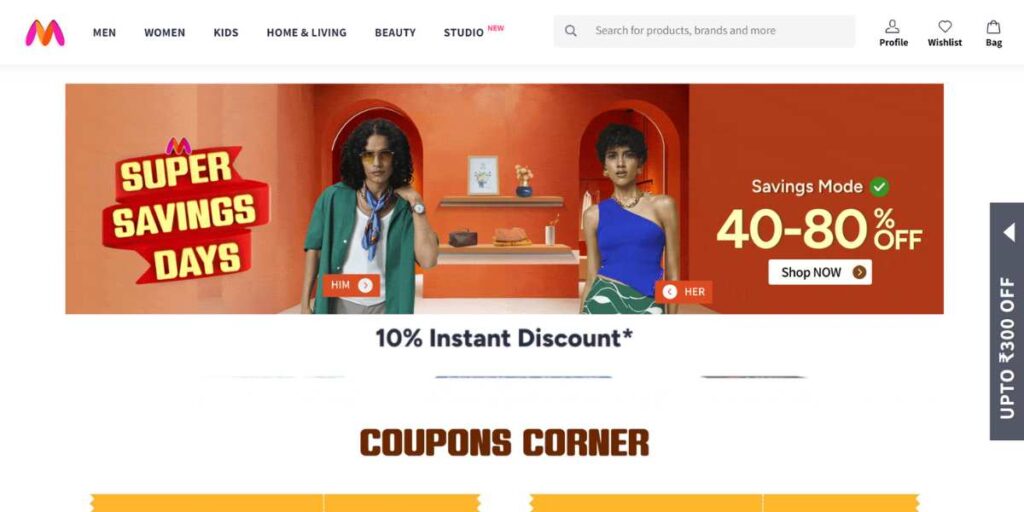
Myntra has created a home ground in India for fashion e-commerce by creating an environment of premium shopping experiences and curated style offerings. Counted among the top e-commerce companies in India, it was acquired by Flipkart in 2014 but retains a distinct identity centered around designer collections and brand partnerships. Myntra has redefined the facade of online fashion shopping, giving impetus to virtual try-ons, fashion consultancy, and personalized style recommendations—all powered by advanced AI algorithms. The platform offers over 5,000 fashion and lifestyle brands, ranging from international luxury labels to indigenous artisans.
Millions of shoppers attend Myntra’s flagship End Of Reason Sale (EORS) events, which consistently deliver record-breaking sales. Its ecosystem has expanded through Myntra Studio (a content platform), Myntra Insider (a loyalty program), and the Myntra Creator Platform, which connects fashion influencers with brands—creating a complete fashion-tech ecosystem.
Unique Selling Points (USP):
- Fashion forward curation, with collaboration with exclusive designers.
- Visual search and virtual try on technologies
- Myntra Insider program with the levels of loyalty benefits.
- Powerful influencer marketing and content incorporation
Key Categories & Services:
Fashion, Footwear, Accessories, Beauty Products, Home Décor, Personal Care, Designer Collaborations
Market Position:
- Size: 45+ million active monthly users; estimated $2.7 billion GMV (2023)
- Ranking: Undisputed leader in fashion e-commerce segment (70% market share)
Company Details:
- Founded In: 2007
- Industry Served: Fashion, Lifestyle
- Headquarters: Bengaluru, Karnataka
5. Nykaa

Nykaa disrupted the beauty retail industry in the country by developing a niche e-commerce platform selling original products in a market flooded with counterfeits. As one of the top e-commerce companies in India, Nykaa was founded by former banker Falguni Nayar and was the first to introduce content-led commerce by integrating beauty tutorials, influencer collaborations, and editorial content directly into the shopping experience. It began with high-end international beauty brands and gradually expanded to include affordable Indian alternatives, including its own private labels.
Nykaa’s omnichannel strategy blends the convenience of online shopping with the sensory engagement of physical retail through its nationwide chain of Nykaa Luxe and Nykaa On Trend stores. The company went public in 2021 with a landmark IPO that valued it at nearly $13 billion—making founder Nayar India’s richest self-made female entrepreneur and positioning Nykaa as a standout model of start-up success.
Unique Selling Points (USP):
- 100% authentic beauty products guarantee
- Wide array of international brands that are difficult to come by in India
- Platform with expert reviews and tutorials that oozes content.
- Successful omnichannel with physical stores strategy
Key Categories & Services:
Beauty, Personal Care, Luxury Cosmetics, Fashion, Wellness Products, Men’s Grooming, Professional Beauty Supplies
Market Position:
- Size: 25+ million active users; $650+ million annual revenue (FY2023)
- Ranking: Undisputed leader in beauty e-commerce (>30% market share)
Company Details:
- Founded In: 2012
- Industry Served: Beauty, Personal Care, Fashion
- Headquarters: Mumbai, Maharashtra
6. Reliance JioMart
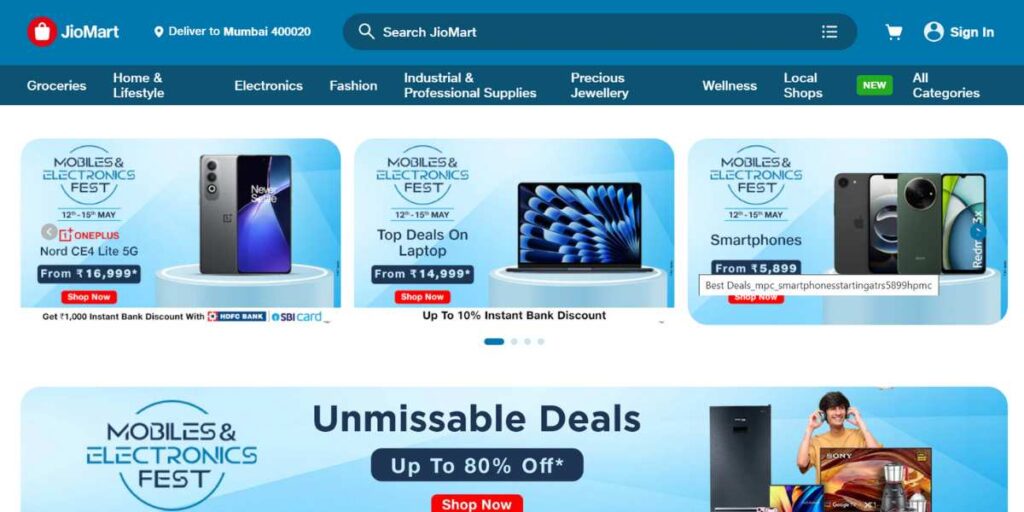
Jiomart is Reliance Industries’ big digital commerce venture: it emulates the retail strength of the conglomerate and its telecom infrastructure with the help of Jio Platforms. Originally national in scope during the pandemic, JioMart started off with grocery, delivery and has rapidly expanded to electronics, fashion and household essentials. The platform capitalizes on Reliance Retail’s massive offline store network comprised of Reliance Fresh, Smart, and Digital and it really integrates the omnichannel experience.
JioMart’s hybrid fulfillment model uses a combination of Dark stores and existing Reliance Retail store network to attain wide coverage in India, especially in smaller towns where other players fail when it comes to logistics. JioMart’s convergence with the greater Jio digital ecosystem marries synergistically with digital services such as JioMart Digital for electronics and JioMart Partner for kirana store digitization.
Unique Selling Points (USP):
- Integration with WhatsApp for frustration free ordering
- Instock many locations no minimum order value on groceries
- Customer omni channel returns and service network via physical Reliance stores.
- Transformations of traditional kirana shops digital program
Key Categories & Services:
Groceries, Electronics, Fashion, Home & Kitchen, Personal Care, Kirana Partner Program, WhatsApp Commerce
Market Position:
- Size: 20+ million downloads; estimated $3.5 billion GMV (2023)
- Ranking: Fastest growing e-commerce platform; 2nd largest in grocery segment
Company Details:
- Founded In: 2020
- Industry Served: Retail, Grocery, Electronics
- Headquarters: Mumbai, Maharashtra
7. BigBasket
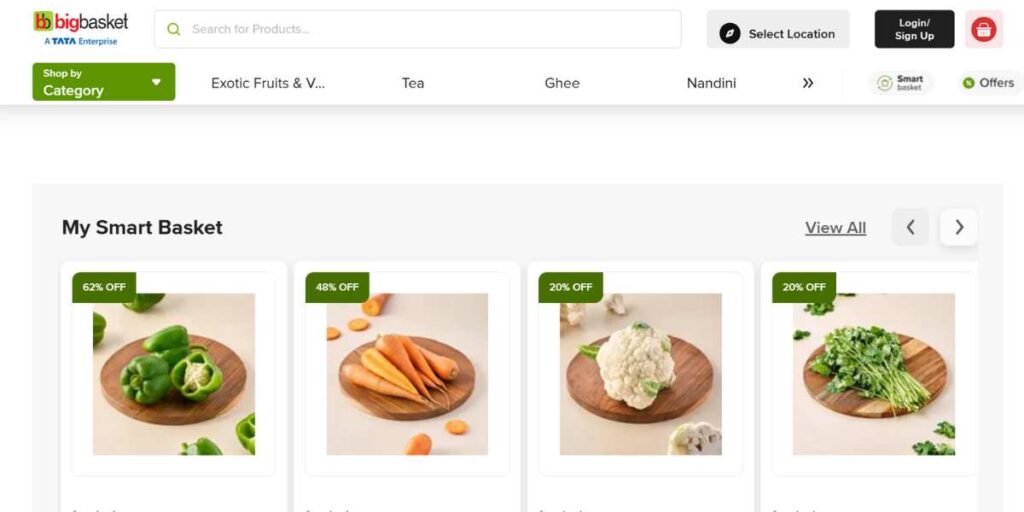
BigBasket is the pioneer of the online grocery delivery system in India and ranks among the top e-commerce companies in India for its innovation in logistics and service. It tackled the enormous challenges of delivering fresh produce and perishables in a tropical climate with limited infrastructure by developing advanced cold chain logistics, quality control systems, and inventory management tailored to Indian grocery shopping habits. BigBasket offers multiple delivery options, including scheduled delivery, BB Express for faster service, and specialty stores like FreshR for meat and FreshG for beauty products. The company was acquired by the Tata Group in 2021.
Through its farm-to-fork initiative, BigBasket maintains direct relationships with farmers and producers, eliminating middlemen and ensuring better prices for both producers and consumers. Its subscription service “BB Daily” delivers essentials like milk, bread, and eggs before 7 AM every day, building strong customer loyalty through consistent, habit-forming convenience.
Unique Selling Points (USP):
- Quality assured farm-to-fork supply chain.
- Exclusive labels featuring quality products at affordable price ranges
- Several modes of delivery from scheduled time to 30-minutes delivery.
- Subscription services for daily essentials
Key Categories & Services:
Groceries, Fresh Produce, Household Essentials, Gourmet Foods, Personal Care, BB Daily Subscriptions, BB Quick Delivery
Market Position:
- Size: 15+ million active users; estimated $1.5 billion annual revenue
- Ranking: Leader in online grocery segment (45% market share)
Company Details:
- Founded In: 2011
- Industry Served: Grocery, Fresh Produce
- Headquarters: Bengaluru, Karnataka
8. Snapdeal
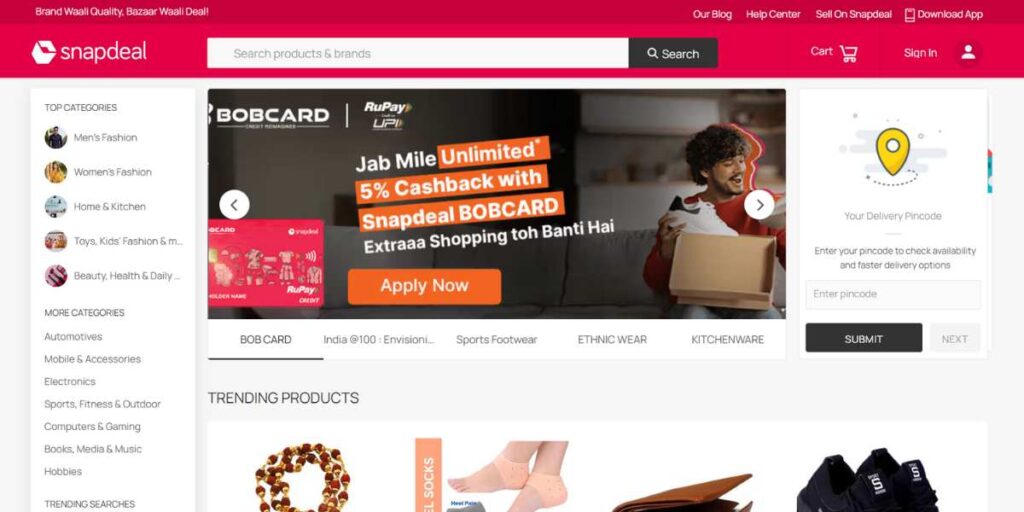
Snapdeal is one of India’s e-commerce pioneers that has reinvented itself in a highly competitive environment. Counted among the top e-commerce companies in India, Snapdeal began as a daily deals site similar to Groupon, later pivoting to a full-fledged marketplace. Its strategic evolution eventually found success by catering to value-conscious customers in smaller cities and towns. Following a period of challenges between 2016 and 2018, Snapdeal launched its “Snapdeal 2.0” turnaround strategy—divesting non-core businesses and refocusing on affordable, unbranded merchandise for price-sensitive consumers.
Today, the platform specializes in the value segment, with most products priced under ₹1,000, and a strong emphasis on aligning with local tastes and preferences across India’s diverse markets. With a capital-light model that relies on regional suppliers and logistics partners, Snapdeal has avoided building costly infrastructure, allowing it to operate profitably while reaching India’s next wave of e-commerce users.
Unique Selling Points (USP):
- Value-focused merchandise under ₹1,000
- Active presence in cities of Tier 2-4 and rural areas
- Multilingual interface supporting regional languages
- Supplier network with products and styles by region.
Key Categories & Services:
Value Fashion, Home Essentials, Kitchen Products, Electronics Accessories, Regional Specialties
Market Position:
- Size: 40+ million active users; focused on sustainable unit economics
- Ranking: Leading value-focused e-commerce platform
Company Details:
- Founded In: 2010
- Industry Served: Value Retail
- Headquarters: Gurugram, Haryana
9. Firstcry

FirstCry has become India’s primary specialty e-commerce platform solely catering to the baby and childcare sector. The market share of this high-potential niche was successfully identified and captured by the company presenting an exhaustive catalog of more than 200,000 products from more than 6,000+ brands in a market segment for children from newborns to early teens. FirstCry’s success lies in understanding the drama of the Indian parents and addressing their needs and concerns holistically as opposed to businesses selling through products in a category.
The ParentCare community integrates e-commerce and expert content offering stage-by stage guidance on the process of child development and parenting issues. With investment that made a significant dent in SoftBank Vision Fund, FirstCry, ever since, has aggressively built its omnichannel reach to over 450 physical stores nationwide – and the largest specialty childcare retail network in India.
Unique Selling Points (USP):
- Compact, specialized knowledge in childcare with curtailed products for appropriate ages.
- Highly loyal program (users via FirstCry Parenting app and community)
- Omnichannel business with physical stores specialists as consultants.
- Encomiastic all things content ecosystem empowering parenting journey.
Key Categories & Services:
Baby Care, Kids Fashion, Toys, School Supplies, Maternity Products, Nursing & Feeding, Parenting Community
Market Position:
- Size: 12+ million app downloads; 70% market share in online baby products
- Ranking: Undisputed leader in baby and childcare e-commerce
Company Details:
- Founded In: 2010
- Industry Served: Baby Care, Childcare Products
- Headquarters: Pune, Maharashtra
10. Tata CLiQ
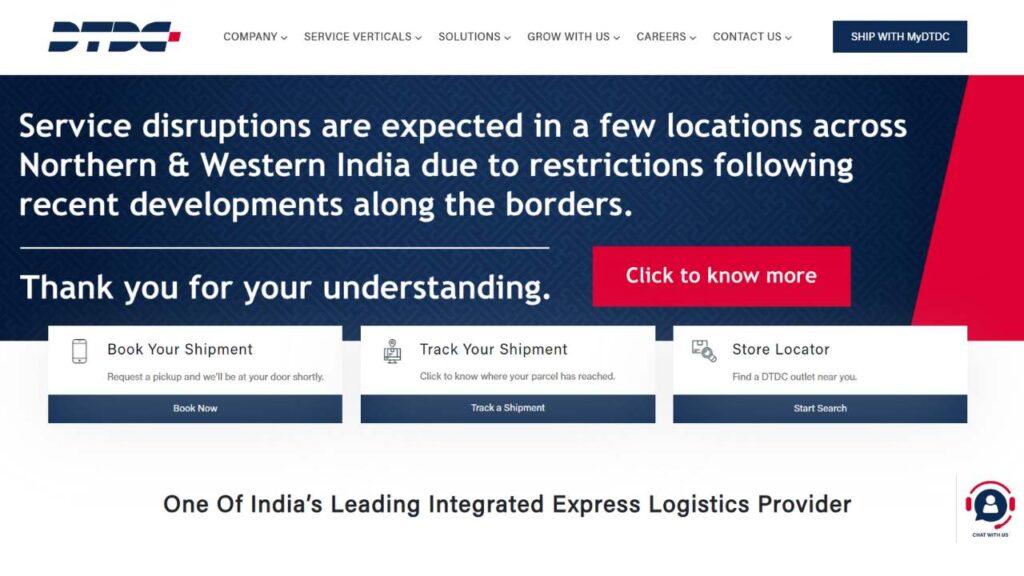
Tata CLiQ is Tata Group’s strategic foray into online retail and is fast emerging among the top e-commerce companies in India by championing a differentiated “phygital” (physical + digital) model that emphasizes authenticity and a premium customer experience over deep discounts. The platform sets itself apart from mass-market players by offering curated selections, authorized brand partnerships, and guaranteed product authenticity. Tata CLiQ operates across multiple verticals—CLiQ Luxury for premium global brands, CLiQ Palette for luxury beauty products, and CLiQ Edition for exclusive brand collaborations.
Its innovative store integration model allows users to browse online and try, collect, or return products at partner brand stores—seamlessly blending digital convenience with physical touchpoints. Tata CLiQ also underscores its commitment to sustainability through initiatives such as certified refurbished electronics, eco-friendly packaging, and spotlighting conscious brands—aligning with the Tata Group’s larger ESG goals and resonating with India’s environmentally aware consumers.
Unique Selling Points (USP):
- Phygital retail model combining online accessibility and onthy shelves shopping experience
- Certified authentic products as guaranteed by Tata brand trust.
- Premium shopping experience no flash sales and no aggressive discounts
- Comprehensive partnership and limited edition from around the world brands
Key Categories & Services:
Electronics, Fashion, Luxury Products, Beauty, Watches & Accessories, Refurbished Electronics, Brand Stores
Market Position:
- Size: 2.5+ million monthly active users; focused on premium segment
- Ranking: Leader in omnichannel luxury e-commerce
Company Details:
- Founded In: 2016
- Industry Served: Premium Retail, Luxury Goods
- Headquarters: Mumbai, Maharashtra
Factors Driving the Growth of E-commerce in India
Several interconnected factors are driving e-commerce companies in india.
- Soaring Internet and Smartphone Penetration: The foundation of e-commerce growth is the ever increasing digital footprint in India. As of January 2025, India had about 806m internet users, a penetration rate of 55.3%. This number is on the rise and has a very strong growth in rural sections. Combined with the growing affordability of smartphones – the lead devices for e-commerce usage by many customers (approx. 75% e-commerce volume comes from mobile devices) – this global online penetration is welcoming millions of new users to the online world.
- Growth of Digital Payments: The rise of safe and convenient digital payment options, UPI, amongst them, has been a revolutionary move. UPI transactions have seen phenomenal growth with 93.23 billion transactions happening in the second half of 2024, worth INR 130.19 trillion. The chances and quickness of UPI, combined with high adoption of digital wallets and other channels of online payments, have slightly diminished the dependence on cash-on-delivery, strengthening the trust in consumers with online deals.
- Favorable Demographics and Evolving Consumer Behavior: Age and Behaviour of Consumer are shifting to the right and becoming more positive. India has a young and large population of which a huge chunk is digitally native and fairly savvy at using online tools and services and this demographic is fueling the growing demand for an extremely diverse array of products and services online. In addition, consumer behavior is shifting, with more and more home shopping, wider product choice, easier price comparison. The rising disposable incomes, above all in urban and semi-urban areas are also contributing to online spends going up.
Types of E-commerce Models in India
E-commerce companies in Indian market comprise of various number of business models, all of them targeted at diverse segment of the online shopping industry:
- Business-to-Consumer (B2C): This is the most basic model where businesses sell their products or services, straight to the end consumers. Both the major players like Amazon and Flipkart are working on this model mostly in which they are able to provide a big range of products ranging from electronic items and clothing to home essential items and grocery items. Niche B2C platforms such as fashion (Myntra, Ajio), and beauty items (Nykaa) are also very well known.
- Business-to-Business (B2B): This model includes online transactions between business concerns. Not nearly as obvious as B2C commerce but a big part of procurement, wholesale and supply chain management e-commerce. The IndiaMART types of websites act as a gateway of connecting manufacturers, suppliers & retailers. The gobbled edition of GeM (Government e-Marketplace.) is Govt’s e-marketplace, a noteworthy B2B Platform for Levt procurement.
- Consumer-to-Consumer (C2C): Platforms C2C allow consumers to sell among consumers. OLX and Quikr Web and Apps are synonymous with buying and selling used goods. This model was always meant to be peer-to-peer community driven and very local, with many transactions.
- Consumer-to-Business (C2B): In this, less often, variant people sell their goods and services to companies. This covers freelancers delivering varieties of skills (writing, design, consulting) on websites like Upwork or individual photographers selling photographs or other creative assets to niche companies.
Also Read: Top 10 Direct Selling Companies in India
Conclusion
The e-commerce environment of India is a vibrant and fast evolving ecosystem with enormous growth prospects and the dance-off of opportunities and challenges. The rise of digital penetration, a youthful demographic, a government impetus for digitization, and the influence of innovations of business models have helped e-commerce to force its way into the Indian retail sector as a vital element. Though institutional barriers, digital literacy, and competition remain, the potential of the unutilized market in non-urban areas, the growth of certain product classes, and the promise of technological breakthrough render this future ably optimistic.
As digital further assumes a place in India, e-commerce companies in India are going to play a stronger role in developing the economy and people’s life in an Indian context as it continues to bridge across geographic boundaries buyers and seller into a new era of digital commerce.
Also Read: Product Based Companies in India
FAQs
What do they project as the current size of Indian e-commerce market?
The Indian e-commerce market remained projected to be approximately USD 147.3 billion in 2024.
Which elements are predominantly fueling e-commerce development in India?
These are the major drivers, increasing internet and smartphone presence, the increasing digital payments (especially UPI), and positive demographics.
What is the classification of e-commerce models in India?
The common models are B2C, B2B, C2C, quick commerce, social commerce.
What are some big challenges facing the e-commerce companies in India?
Logistics, development of customer trust, gaps of digital literacy, and sheer competition are challenges.
